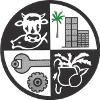Papua New Guinea’s largest sugar grower, Ramu Agri Industries, is adding value to its sugar harvest with new products. Business Advantage PNG spoke to General Manager Jamie Graham about its production of spirits and ethanol.
Ramu Sugar is a well-known brand in Papua New Guinea. Its producer, Ramu Agri Industries (RAI), harvested 320,467 tonnes of cane from 6,354 hectares, yielding 30,208 tonnes of sugar.
The company is now diversifying its manufacturing activities, with the planned launch later this year of two new spirits in its emerging range of exotic alcoholic beverages.
After launching its quality-aged Ramu Rum earlier this year, the Morobe-based company is now planning to unveil new vodka and gin products, which will be aimed at the high-end alcohol market.
Jamie Graham, General Manager at RAI, said the company—which primarily focuses on sugar, beef and oil palm—would target the domestic and international markets with the new products, as it was doing with Ramu Rum.
Niche markets
‘If we can reach the right niche market, there is great potential and we can certainly produce high quality alcohol—there is no doubt about that,’ Graham told Business Advantage PNG.
‘That’s partly because we have invested a lot of money in the distillery over the past five years, and we also have some very good technical staff with experience.’
RAI, which has been a subsidiary of New Britain Palm Oil Limited since 2008, has focused on establishing a unique alcohol brand with distinctive Papua New Guinean origins through the expanding business.
Local flavour
‘The spirit will be produced entirely in the [Markham] valley, from cane grown in the valley, processed in the factory producing molasses, and then used to produce vodka and gin, as is the case with the rum,’ Graham explains.
‘Then of course it’s aged in oak up here in the valley and finally bottled up here—so it is very much a local industry. This is quite unique and gives us the distinctive character we want.’
RAI is aiming to launch the vodka and gin by the end of this year, with the final steps in the development process to focus on product branding and packaging.
‘We would prefer to offer a high-end product but we will see how it is received. If it goes well, we could possibly look at broadening our range,’ Graham added.
Ethanol exports
A long way from its fledgling niche alcoholic venture, RAI recently exported its largest shipment of ethanol, with more than two million litres shipped from Lae Port to South Korea in June.
While RAI has exported ethanol since 1984, this is the company’s second bulk shipment to South Korea after it looked to generate business in this area, following a fall in sugar prices.
With Australia no longer a key ethanol export market for RAI due to oversupply, Graham believes the company will continue to commit to bulk shipments to Asian nations like South Korea.
‘At this stage I don’t see, in the short term, any alternative,’ Graham said. ‘We don’t have the storage capacities to just hold bulk storages of molasses. We have the storage to hold alcohol, but not molasses.
‘At the moment, unless another market presents itself, we are going to have to continue these bulk shipments for the foreseeable future.’

